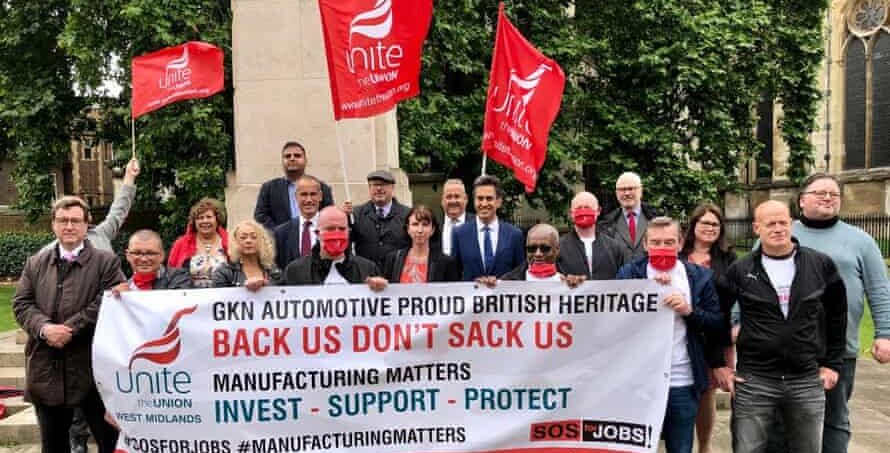

By Joe Crathorne
Faced with the threat of their factory closing, 550 Unite members at GKN’s Chester Road plant in Erdington, Birmingham voted by 95% in a 95% turnout for strike action.
The strike was due to commence on 27 September – but with less than a week to go before the action it was suspended. Strikes will now start on 16 October if no agreement is reached.
The parent company, venture capitalist and renowned asset-stripper Melrose, plans to offshore production to Poland or France in spring 2022. The workers – all skilled and highly productive engineers – are committed to taking all-out continuous strike action to prevent this.
Alternative plan
The plant makes drivelines for cars produced at Jaguar, Land Rover, Nissan and Toyota. Currently 90% of its output is for use in combustion engines, but the workers want to switch to production for electric vehicles.
They have written a 90-page alternative plan, which convenor Frank Duffy has called ‘an echo of the 1976 Lucas Plan, when shop stewards at Lucas Aerospace, also in Birmingham, proposed converting their plant to socially useful products,’ adding, ‘if we want to see a green future for the UK car industry and save our skilled jobs, we couldn’t leave it to our bosses and had to take matters into our own hands’.
Unfortunately the union didn’t exactly ‘take matters into their own hands’. Instead they drew up their plan with local management and in consultation with the big car manufacturers. It guarantees production targets, productivity and profits for the bosses. In the end it relied on subsidies from the Tory government, which it has so far shown no interest in granting.
This shows that workers cannot rely on the bosses, the government or the market to make the transition to sustainable technologies. Only the class struggle can secure that by fighting for workers’ control and nationalisation.
Where next?
Sharon Graham has given vocal support for her members at GKN Birmingham, saying. ‘We will not stand by and let this employer offshore British jobs without a fight.’ However, action speaks louder than words.
It is unclear if Graham has played any role in the dispute beyond this. It appears Des Quinn, national officer for the automotive industries, and assistant general secretary Steve Turner have been responsible for the cross-class strategy and calling off the strike for more talks.
But the GKN engineers must now rely on their own strength and that of other workers in the industry. The first step is to ensure the strike takes place on 16 October. If there are any signs of management starting to remove machinery, the workers should turn the strike into an occupation.
At the same time they should approach other Unite workers in the supply chain, especially those at Jaguar, Toyota and Nissan for solidarity. None of these workers’ jobs are safe. The Birmingham engineers should also make links with GKN metalworkers in Italy, who are fighting the same battle against cuts and closures.
Finally they should reject the idea of collaboration with the bosses, who have brought the plant to its knees. Instead of ‘alternative plans’ they should demand the company’s full nationalisation, without compensation to the carpetbaggers, and that it should be run under their, the workers’ control. Only this way can jobs be saved permanently and the timely transition to electric vehicles secured.